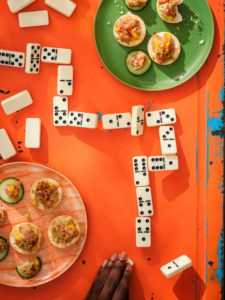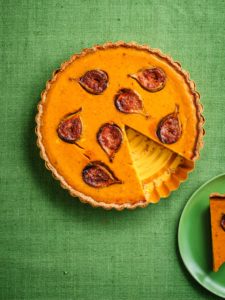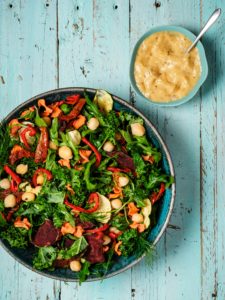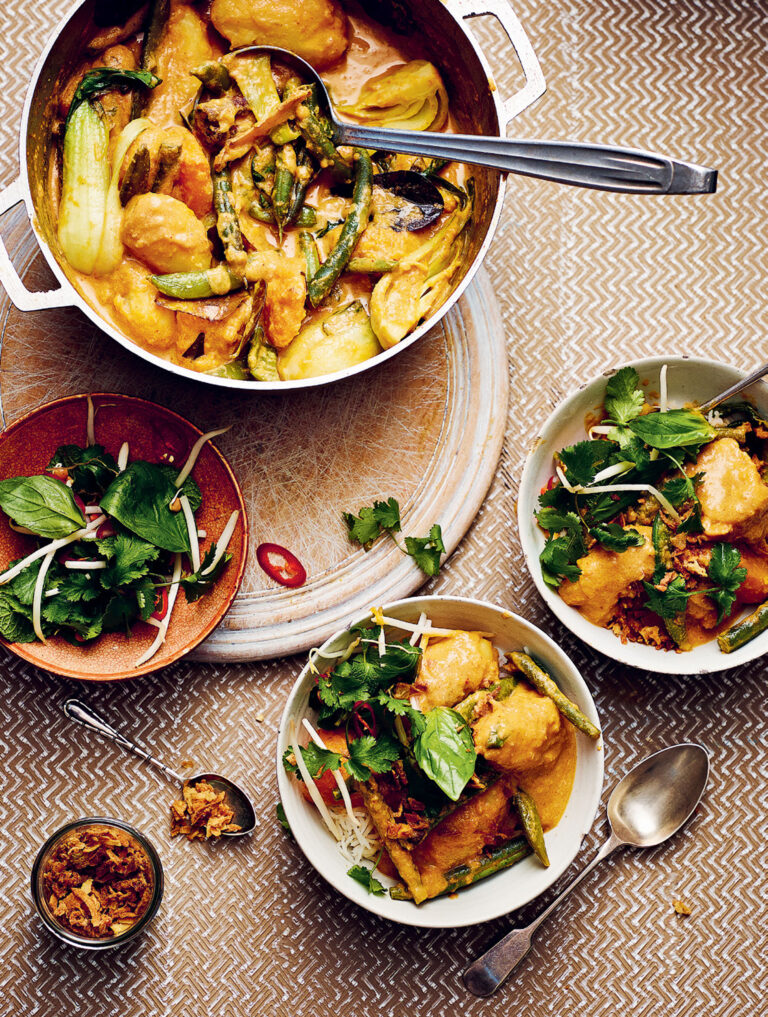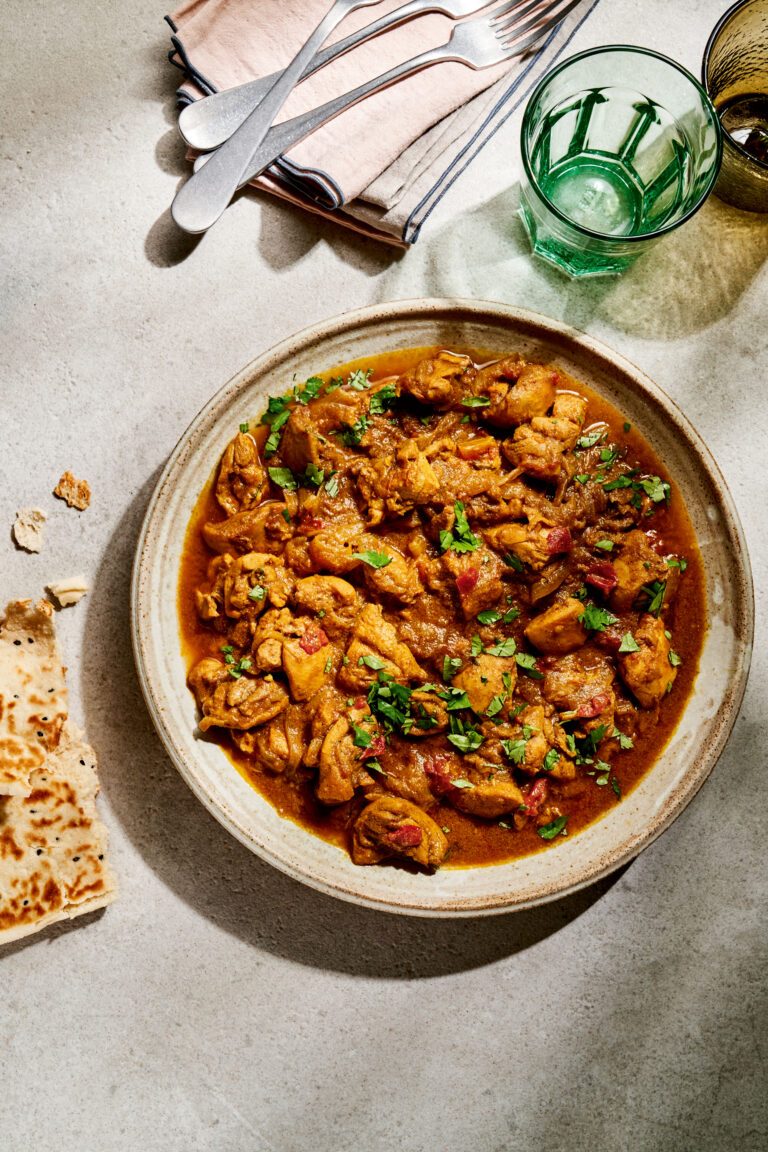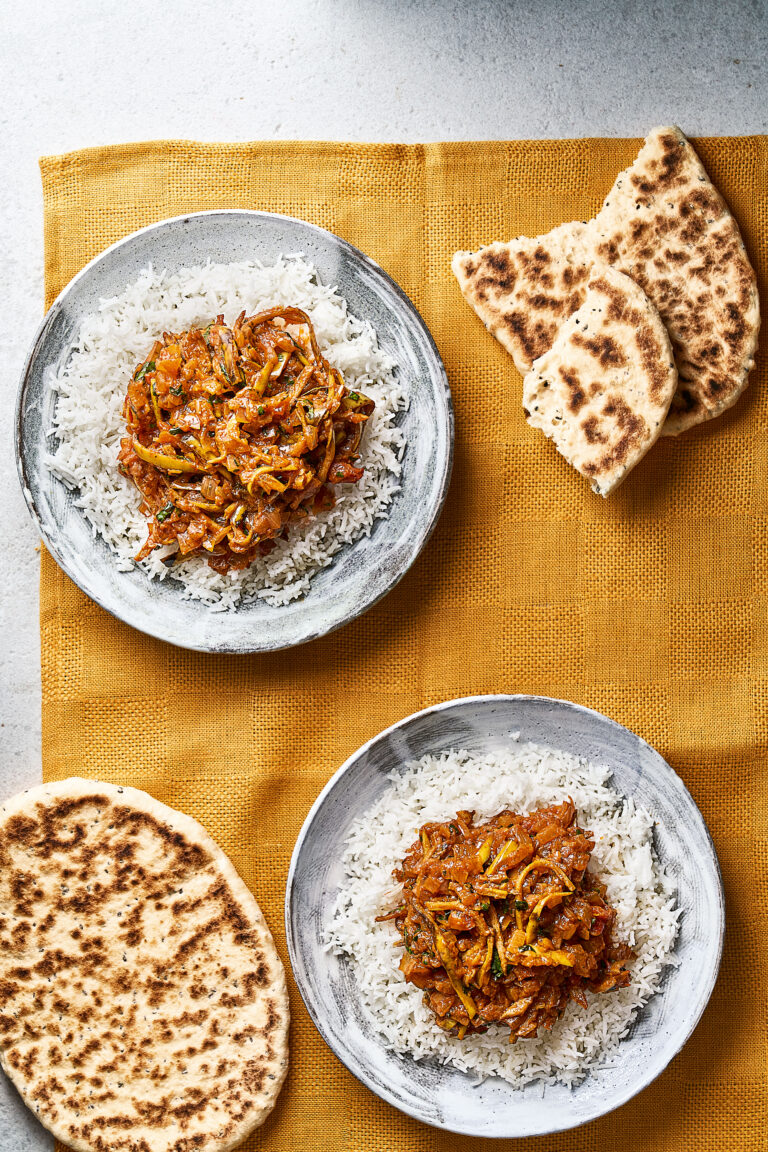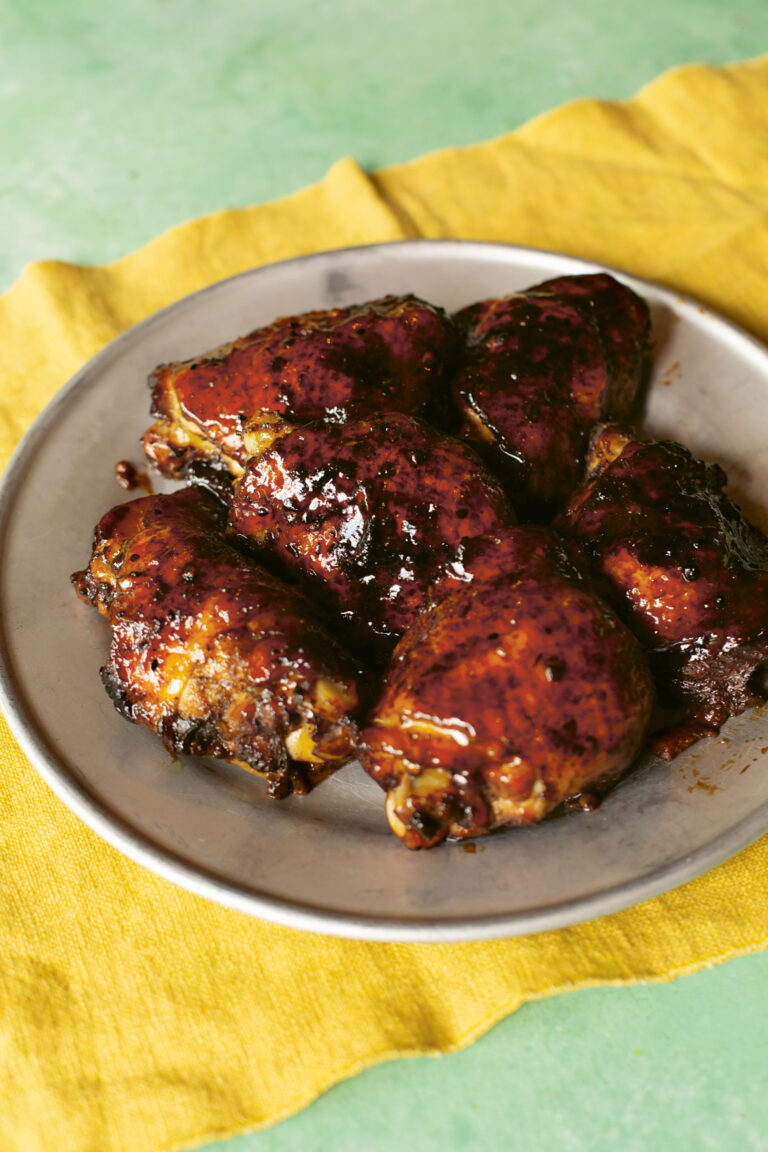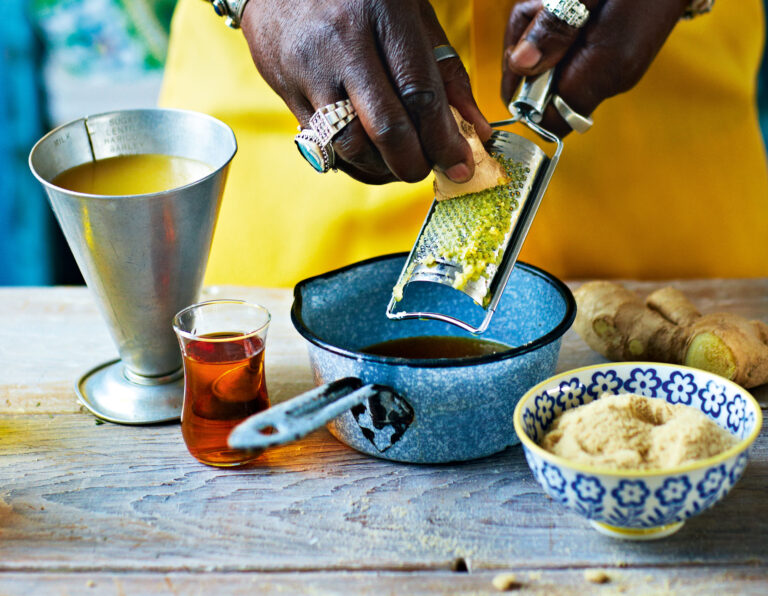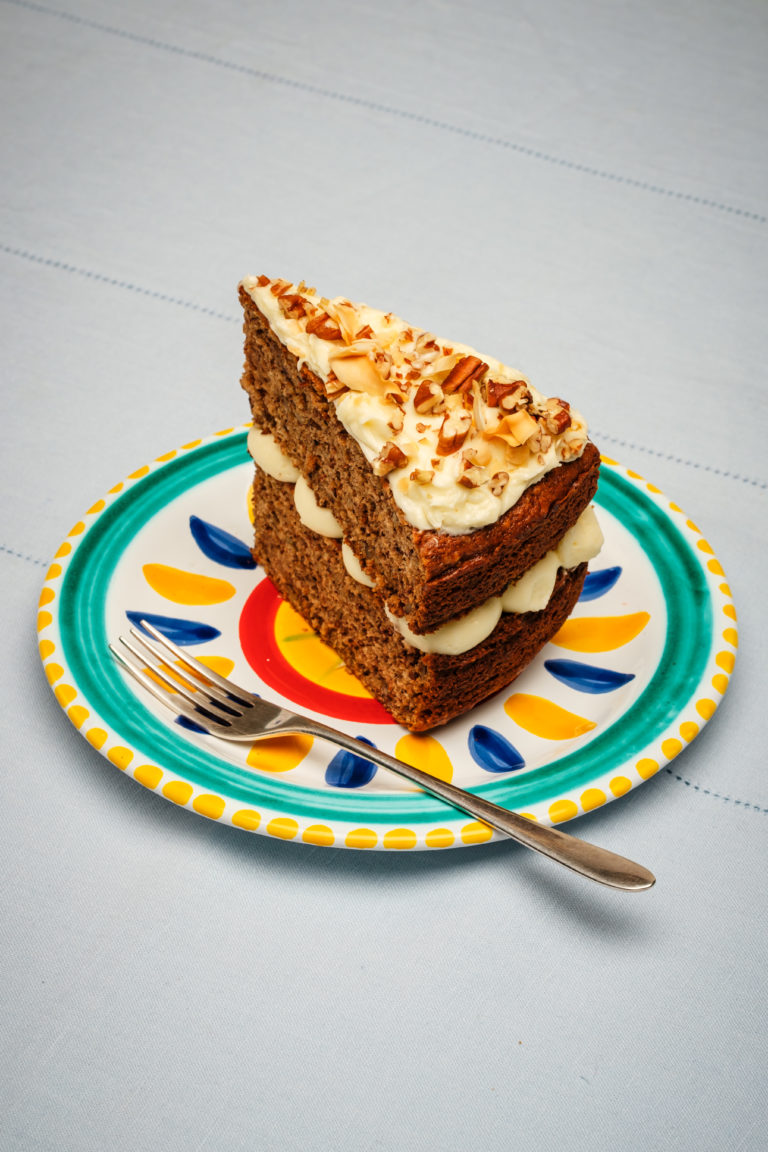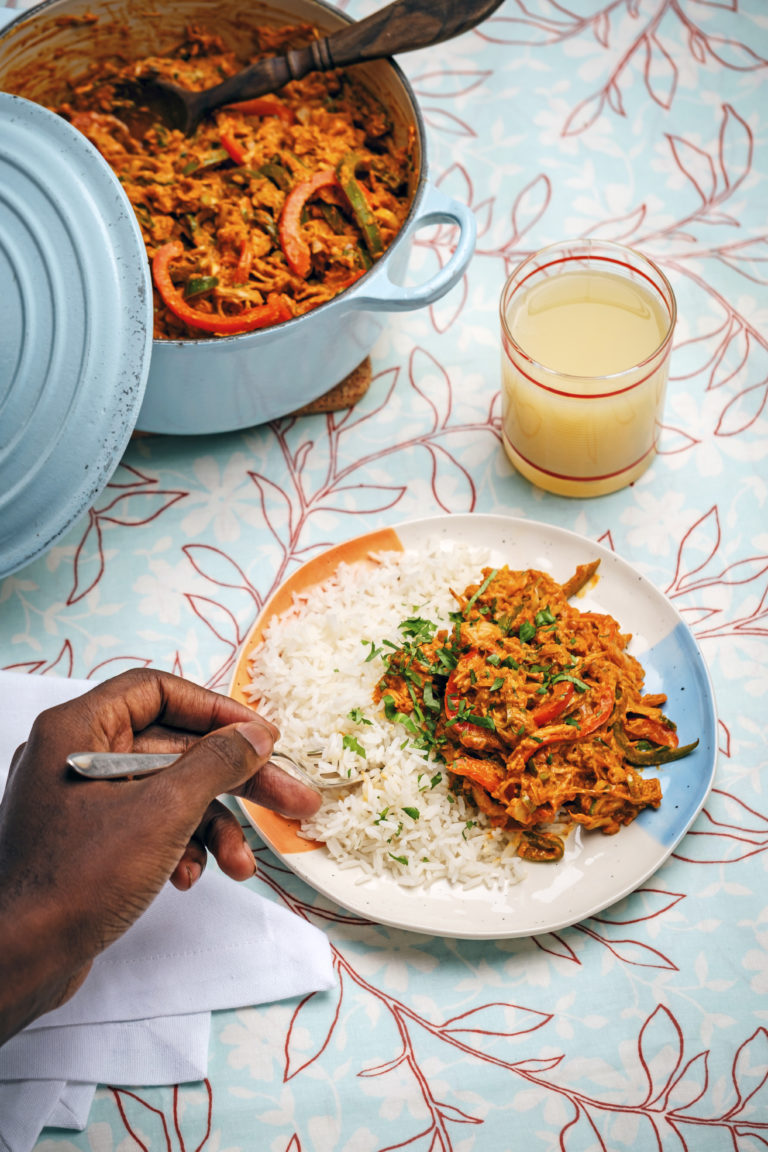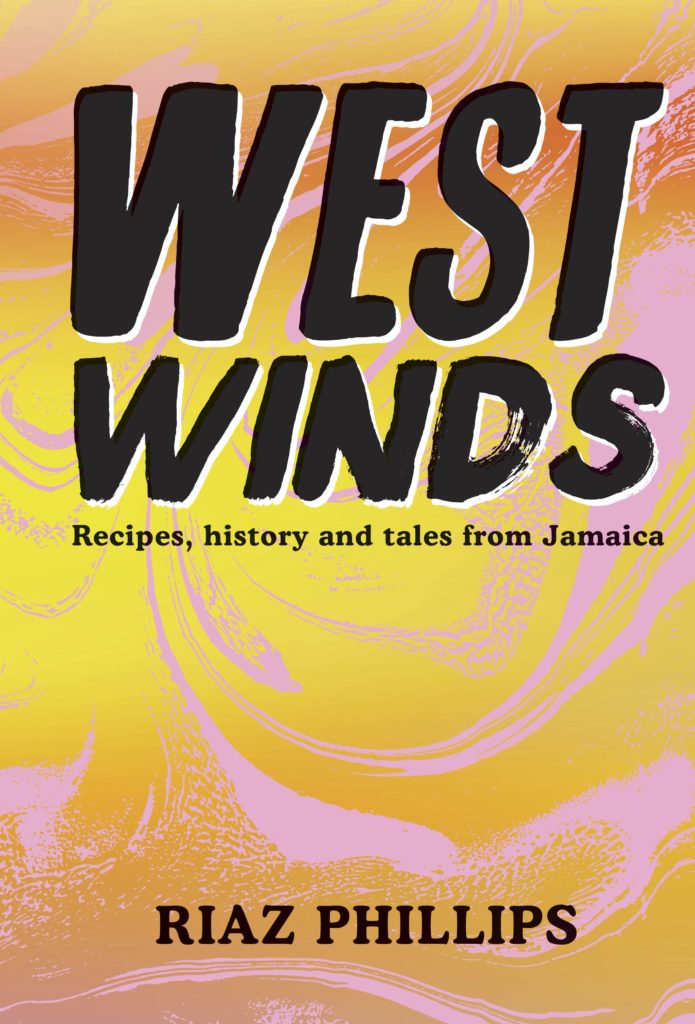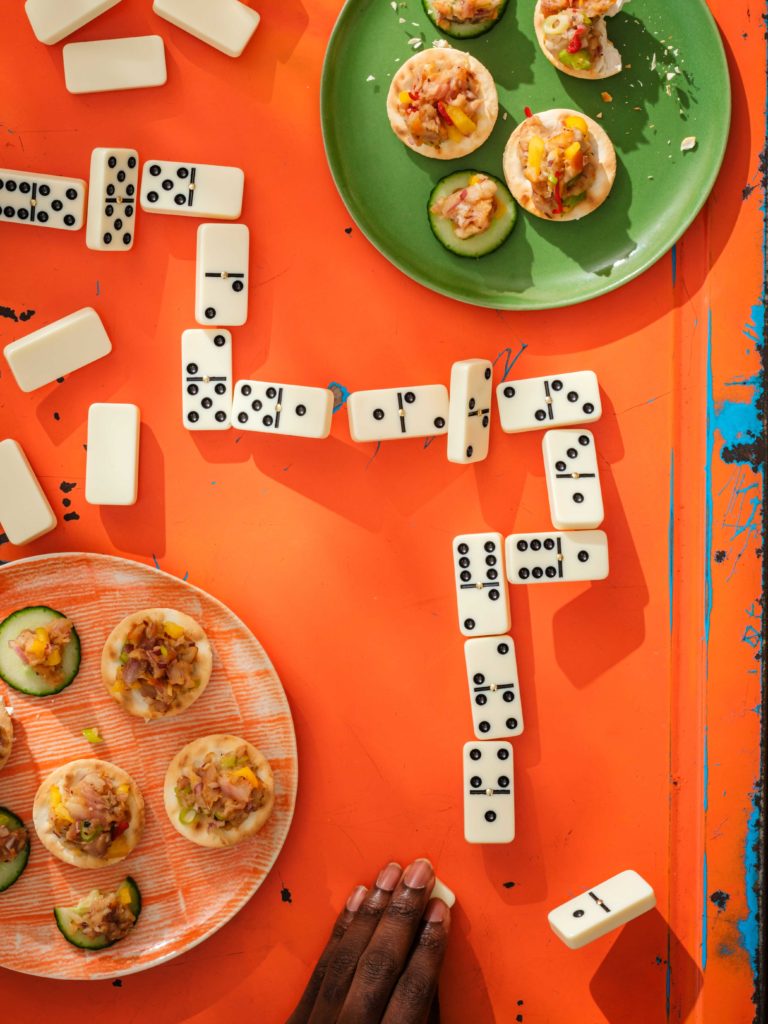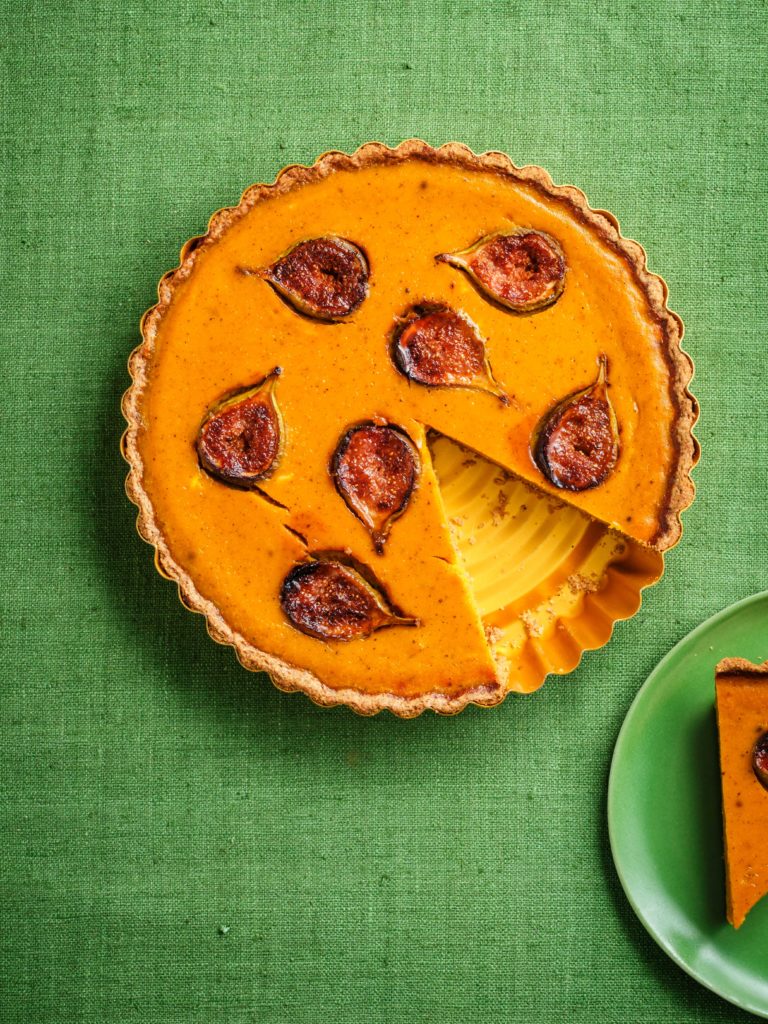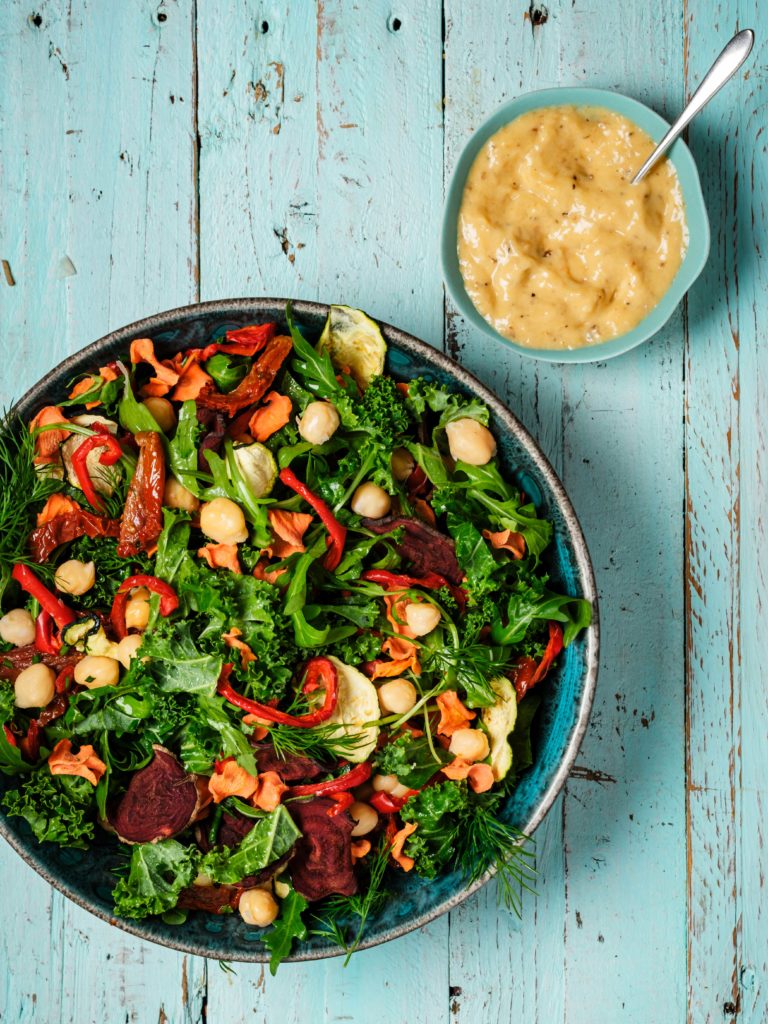Riaz Phillips’ Curry Goat
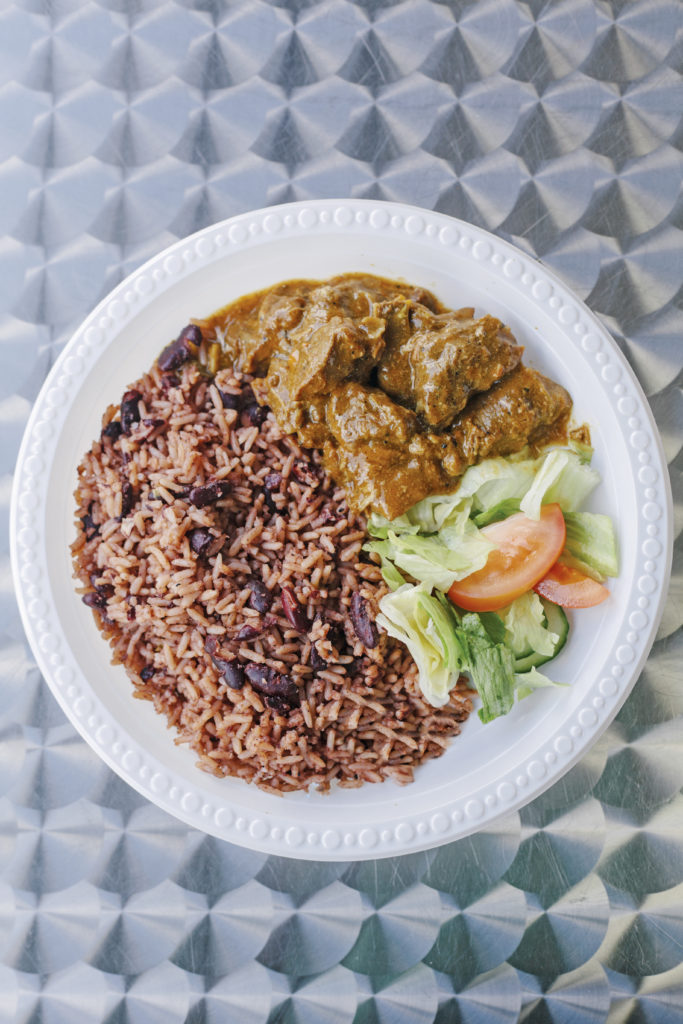
West Winds is a vibrant celebration of Jamaican food from cookbook author Riaz Phillips and this traditional Curry Goat incorporates the joyful tastes and flavours of the country. Thyme, ginger and crushed pimento seeds give this rich, Caribbean curry its flavour.
From the book
Buy From
Introduction
“You eat GOATS!” a fellow classmate wailed in horror as I recounted the joy of a recent meal of curry goat during a primary school conversation. Something about the way she added the “s” at the end made it sound insidious, like my family were cave-dwelling beasts. In the absurdly titled They Eat That? A Cultural Encyclopedia of Weird and Exotic Food from Around the World, this sentiment is echoed when the author mentions, seemingly with a literary nudge-nudge, wink-wink, that “Curry goat is actually one of the national dishes of Jamaica,” likely to the shock and dismay of its readers.
In retrospect, both point to the same Western reverence and sanctity towards eating certain animals, and the seeming disgust of consuming others. While goat is widely available at local butchers across Britain, particularly in areas with a high ethnic population, it has never fully entered the British culinary repertoire and it’s likely this prejudice is the reason. Although goat (and mutton) was favoured during the Tudor period of British history, especially in pies, it doesn’t seem to have caught the national imagination since.
Things are different in Jamaica, where meat options were once markedly more limited. Versions of curry goat have been so popular for nearly a century that it was once in contention for the honour of national dish. Writers as far back as the 1600s revealed that goat was preferred to mutton by people of West African descent, and the remnants of this are clear today. As popular as curry goat is in the Caribbean, goat-laden pepper soup is equally adored by those from Sierra Leone to Nigeria, hence our shared nonchalance at the thought of eating goat. The indentured Indian community who arrived in late-19th century Jamaica must have revelled at the reception to their native slow-cooked goat curries, often made from rationed mutton on the weekends. With this meeting of peoples, Caribbean curry goat was born.
While the likes of tikka masala and green Thai curry have reached mass awareness in Britain, curry goat lags behind. The reason? Perhaps, the lack of affinity to bones. Popularized high-street Caribbean chains attempt a substitution with bone-free lamb, yet for curry conservatives (small “c”) many of Caribbean heritage stay steadfast in their support of the presence of goat bones. While some ethnic cuisines have diverged from their cultural origins to crossover, put simply Caribbeans aren’t having any of it!
I’d very much suggest using this recipe as an introduction to the joy of bones. The search for the last piece of wonderfully seasoned gristle hidden in the crevice of a bone is like a treasure hunt and the ability to strip a bone to its gleaming white core will hold you in good stead with many Jamaican elders.
Ingredients
| 1kg | goat meat on the bone, cut into bite-sized pieces |
| 5 tbsp | oil of choice, such as rapeseed or coconut |
| 1.5 litres | hot beef/lamb/goat stock or hot water |
| 1 tsp | light soft brown sugar (optional) |
| 5 sprigs of | thyme |
| 1 tsp | curry powder |
| 2 tbsp | coconut milk, or coconut cream |
| 1 | Scotch bonnet pepper, whole |
| 1 | large potato, peeled and cut into bite-sized pieces |
| ½ | bell pepper (colour of choice), deseeded and chopped (optional) |
| For the marinade: | |
|---|---|
| 6 | pimento seeds (allspice berries), crushed, or ½ tsp ground allspice |
| 5 sprigs of | thyme |
| 3 tbsp | curry powder |
| 3 | garlic cloves, minced |
| 2.5cm | piece of fresh root ginger, peeled and minced |
| 2 | spring onions (scallions), finely chopped |
| 1 tbsp | Jerk Seasoning (optional) homemade or shop bought |
| 1 tsp | mixed herbs (optional) |
| 1 tsp | soy sauce (optional) |
| ½ | bell pepper (colour of choice), deseeded and chopped (optional) |
| ½ | onion, finely chopped |
| Pinch of | freshly ground |
| black pepper | |
| Pinch of | sea salt |
Method
Mix the ingredients for the marinade in a large bowl. Add the goat and, using your hands, turn the meat in the marinade until coated. Cover the bowl and leave to marinate in the fridge for at least 30 minutes, ideally overnight –or even 72 hours is welcome.
Heat the oil in a large, heavy-based sauce pan or Dutch pot over a medium heat. (If using a pressure cooker, see note below.) Remove the goat from the marinade, reserving the marinade for later. Add the goat to the pan or pot and brown on all sides; this will takeabout 5 minutes. (Do this in batches to ensure the meat browns, rather than steams, adding more oil if needed.)
Return all the browned meat to the pan. Pour 1 litre of the hot stock or water into the marinade bowl, stir, then pour it into the pan to cover the meat. Bring up to the boil, then turn the heat down to low, cover with the lid, and cook for 45 minutes to 1 hour. After 45 minutes check the pan. Add the remaining stock or water if the curry looks too dry and stir to ensure it isn’t sticking to the bottom of the pan. Taste and add extra salt and pepper to taste and the brown sugar, if using. Add the thyme, curry powder and coconut milk or cream and cook for 5 minutes. Add the Scotch bonnet, turn the heat down to low and simmer, covered, for 30–45 minutes.
Add the potato and bell pepper, cover and simmer for 30 minutes. Taste the meat, if it’s not as soft as you’d like, cook for a further 20 minutes, or if the sauce is too dry, add 3–5 tablespoons of water and heat through. Turn off the heat and let sit for 20–30 minutes before serving with rice & peas or Syrian flatbread.
NOTE If you have a pressure cooker, brown the meat as described, above, then transfer the browned meat to a pressure cooker with the stock and marinade and cook for 30 minutes. Transfer the contents of the pressure cooker back to the pan. Season with salt and pepper, add the sugar, if using, thyme, curry powder, coconut milk or creamed coconut and Scotch bonnet and simmer for 45 minutes, then continue as mentioned above.
Reviews
Have you tried this recipe? Let us know how it went by leaving a comment below.
Thank you for your rating. Our team will get back to any queries as soon as possible.
Please note: Moderation is enabled and may delay your comment being posted. There is no need to resubmit your comment. By posting a comment you are agreeing to the website Terms of Use.

